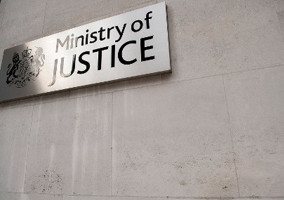The £900m Transforming Rehabilitation programme to reform probation has been chaotic and underfunded, and has allowed large private providers to exploit small charities, according to a report published this week.
Beyond Bars: Maximising the voluntary sector's contribution in criminal justice, a report by think tank New Philanthropy Capital into charities’ role in rehabilitation and prison reform, found that the government’s flagship programme had been chaotic and underfunded.
Transforming Rehabilitation was introduced in 2014 and 2015, in order to be ready for the General Election, and involved simultaneously cutting funding, requiring an increase in provision, and transferring staff and services to new commercial providers.
Charities were encouraged to bid for prime contracts but were largely prevented from doing so because contracts were only open to organisations with a huge amount of funding on the balance sheet.
Chris Grayling, then the Justice Secretary, had said he wanted Transforming Rehabilitation to offer an increased role to charities, but the report found it had been harmful to the sector.
Charities asked to work for free
The report found that charities had been used as “bid candy” – when an organisation is involved in a bid to make it look attractive but not offered any work. And it found that charities’ time had been wasted in applying for contracts that they did not win.
It found that most charities now involved in the project were not fully recovering their costs. Other charities had had offenders referred to them but were not being paid at all. Yet others were only signing contracts now, two years after the programme launched.
Meanwhile, philanthropic funders were pulling out of the sector because they did not want to subsidise private profit or the public purse.
“Chaotic doesn’t cover it,” one charity told the report authors.
Damaging campaigning
The report also found that Transforming Rehabilitation was damaging charities’ ability to campaign, and appeared to have silenced many charities.
It found that payment-by-results programmes designed to encourage innovation had had the opposite effect, and driven charities into a risk-averse culture.
“Grass roots organisations feel they are ‘being exploited’ by some TR providers,” the report says. “With services provided through TR thin on the ground and demand increasing, providers refer to local charities outside of the supply chain, who are not only not being paid for their services, but also risk losing other funding sources by engaging.”
“Many charity providers have pulled out over lack of clarity, which has cost them significant resource. It has been two years and some are only just signing contracts now.
“TR’s payment by results approach risks disincentivising organisations from working with the hardest to rehabilitate.”
IT system still not in place two years later
Separately a Parliamentary inquiry into Transforming Rehabilitation has been told that an IT system necessary to make the service work has still not been delivered, two years late, and that prime providers had received 30 per cent less referrals than expected – making it impossible to hit PbR targets.
The committee also heard that rather than encouraging more volunteering and mentoring, as it was intended to do, the programme had actually made it more difficult for charities using these interventions.
Dame Glenys Stacey, HM Inspector of Probation, told the committee that the process was “half-baked” and unlikely to succeed.
Related articles












